Tholulwazi Primary school
STRIVE FOR EXCELLENCE
About Tholulwazi Primary School
Our school encourages social and emotional competencies like self-awareness, self-management, social awareness, relationship management, responsibility and decision making. The school works towards developing learners to be critical thinkers. The Curriculum offered in the school includes subject discipline designed to give our learners a good foundation in different fields of study. Knowledge skills: focus on developing our learners thinking and communication skills.
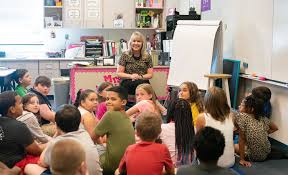
Vision and Mission
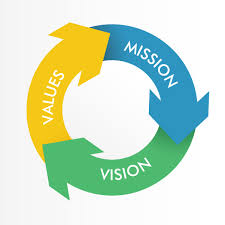
VISION
Tholulwazi primary school is a teaching school. That accommodate all type of the learners and those with physical disabilities, and ensures that learners are independent, artistic, valued, inspired & stimulated in a nurturing and innovative teaching & learning environment.
MISSION
We will achieve this by:
- Creating a fun and joyful environment for the learners.
- Engaging learners in sports, art and cultural activities.
- Meeting the needs of the students with disabilities inside the school environment.
- Engaging parents and community to a successful teaching and learning of the school.
- To develop awareness of moral. Social and religious values.
- To work in partnership with parents, governors and other professionals to deliver the agreed aims of the school.
- Our school also aims to employ high quality of teachers who will be able to use different strategies to accommodate learners with learning barriers like those learners who are partially blind.
Inclusive School Set Up
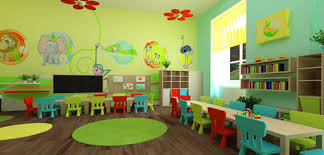
Facilities and infrastructure provided by the school are align to the needs of the learners. Learners with visual impairment have a guide blocks and specific signs to indicate rooms and other facilities, learners with physical disabilities have ramps and spacious room in order to make them move freely.
Our school has ramps where there are steps, width and positioning of doors and doorways, opening and closing speed, classrooms clutter such as games, bag, rugs, toys and sporting equipment. There is table, bench and shelf height, access to sink and other specialised classroom equipment also have access to other areas of the school such as other building, playground and sporting field. There is visibility of hazard.
In our classrooms, the desks are in small groups (2-4 desk per group) so that all learners have the opportunity for cooperation learning, collaborating and discussion.
Centers appeal to various learning style but they are accessible and open as well, the materials and manipulatives at each center are appropriate and stored where all learners can reach them. Placing books on a low shelf for smaller learners and those who are in a wheelchair.
There is an area in a classroom where the learners can come together to have discussion, develop social skills and participate in large group activities. The space is enough for all learners to gather.
Our inclusive classrooms are decorated in a way that does not create distraction and sensory overload, too many bright colours, posters can easily distract the most focused child.
There is adequate space for all learners to move safely around the room, clear clutter, stabilize furniture, tape down wires and cables, and place sign and symbols around the room that point out (Exit) and (Entry) ways in case of emergency.
Contact
- Johannesburg, Gauteng, South Africa
- 011 714 4421 - Tholulwazi Primary School
- tholulwazi.primaryschool@gmail.com
- Mon-Fri - 08:00-15:00
Team
Mamsebetsi Moloi
Principal
Phiwayinkosi Zondo
Deputy Principal
Dudu Mkatshwa
Head of Department of Mathematics
Ntombifuthi Ngcobo
Head of Department of Science
Lindokuhle Mlaba
Head of Department of Life Skills
Bongani Sibanyoni
School Administrator
Leadership and management
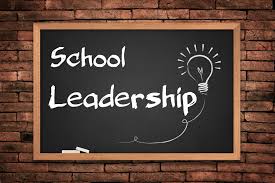
Tholulwazi primary school is the primary which provide the local leaners’ with grade through grade seven level. The leadership and management is the most crucial aspect that make Tholulwazi primary. Which is directed by the main decision maker the principle with the collaboration of other stake holders such as vice chancellor, teachers, HODs heads of departments, SGB school governing bodies, trustworthy secretary and treasurer, human resource manager, governmental representative inspectors and others sponsors.
Roles
Each and every stake holder has the role to play so that the school my keep on thriving with the excellent passing rate. Teachers manages the learners behavior, learning within and outside of the school. The SGB of the school is the leader selected by the community to be some sort of the connecting fiber for between the community and the school. The school principal is the kind of the leader who is in check with the latest trends so that he can make informed decisions such as hiring employees who are going to care for the learners well-being and their learning. The aim of this act was to get parents, educators, administrators, students and members of the community to work together to run a college.... The main purpose of the SGB is to help the teaching staff (the principal and teachers) in order to ensure that pupils receive the best possible education. The secretary of the school is responsible for the school secretary acts as the school's head, welcoming and providing information to students and parents. Secretaries arrange meetings, answer calls, and provide teachers A principal's role is to provide the school system with strategic direction. Principals establish uniform curricula, assess teaching methods, track student achievement, promote parent involvement, update policies and procedures, administer budgets, recruit and evaluate staff, and supervise facilities. and administratively assisted school administrators. We are helping to keep records of students. Department heads (Hods) complain in some schools about the absenteeism of teachers, the late arrival and the workload. ... Hods oversee teaching and learning in their role-function as outlined by the Department of Education, ensuring that class activities are carried out, marking done, and providing feedback on time.
Teacher Attributes
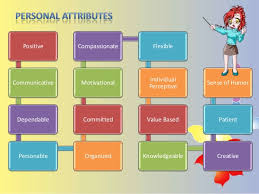
Our teachers will create an empowering setting for learning and recognise and respond to the needs of learners. We aim to cultivate supportive relationships with parents and outside organizations to tackle social and environmental issues, and take the role of counselor if the need arises. Our teachers are facilitator of learning as they are responsible for constructing a learning environment that is appropriate for the age and level of her/his class, and they possess effective communication and linguistic skills. Also, they have sound knowledge and understanding of subject material, as well as techniques and how to use available resources optimally. The school will also accommodate learners who are partially deaf by creating more visual aids and hearing aids. Our school will develop a school system that will incorporate more of co-curriculum activities such as sport grounds, creative art activities like drama theatres, music, dance, painting, drumming etc.
Curriculum for 21st century skills
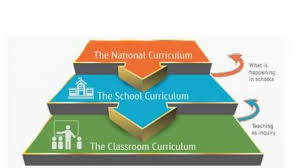
Extra Curricula Activities



1. Athletics.
In terms of athletics, there will be dancing where learners will learn the skill of perseverance. Dance teaches learners about culture. it will help learners develop physically and mentally as most forms of dance require discipline and strong body.
Since there is a lot of learners who get bullied in school, the school has organised self defense classes where learners will learn how to defend themselves, learn about friendship, courage, bravery and support. Self defend classes will teach learners self- control and self discipline, aspects which will benefit those children suffering from ADHD as they are have the skills that are underdeveloped in them. they also help in physical development in the child.
2. Creativity.
Learners will learn about painting and sketching, that will improve their creativity and imagination. This will also allow learners with disability to take part in the program. Learners will improve their creative skills as their brain will begin to develop the areas associated with creativity the more they are exposed to and works with creative things- painting and sketching can help develop problem solving skills.
The learners will also take part in role playing drama that will help learners to improve their confidence in talking with others and also improve their public speaking skills. Drama helps learners develop physical, artistic and social skills. It also improves the child memory and improvisation skills. Often shy children who have a talent for acting become more confident and social through drama clubs.
3. Book club.
Book clubs are a great way for little book worms to have their fun and socialise with other book lovers. Many things can be gained from a book club- not only will the literature itself teach learners a lot about the world, the way it works and so much more, but it will also help them develop their reading skills, which will have a tremendous impact on their writing skills.
4. Craft, Pottery and Sculpting.
Working with clay and creating something with their hands can give a child a sense of satisfaction that is not found through just any activity. Clay can have a therapeutic effect and is capable of keeping you child occupied for hours. The learners will develop sensory and motor skills through creative works. Children will learn about shapes, the three-dimensional world and even need to have a form of discipline, especially when working with clay.
5. Debates.
From improving speaking and listening skills to building self esteem, learning to debate could have many benefits for a learner. Debating teaches learners to reason with evidence, expression and delivery- being able to speak with the right pace, tone, language and body language to engage an audience and convey an argument, listing and responding- listening critically to the other sides argument and using what you hear to develop a well- reasoned response, organisation and prioritisation- knowing ow to structure your speaking and when to say the things you want to say.
6. Spelling bee.
Tholulwazi encourages learners to enter spelling bee competitions (both learners with and without disability). This will allow learners to learn grammar like learn the definition, pronunciation, and roots of the word. They will also enhance vocabulary- develop an ability to understand more words will allow the learners to become literate and enjoy reading extensive range of material. The learners will develop a competitive spirit- spelling bees allow individuals to compete in a supportive environment. The brain activity and excitement that goes with a spelling bee is just as stimulating as a physical competition. Spelling bee will instill greater knowledge to the learners- learning words can get students interested in tracing the origin of a word and its etymology. Spelling bee improves cognitive skills of the learners- the spelling bee will allow your child to develop a range of cognitive skills including the ability to handle pressure. Spelling bee improves the learners confidence- a learners confidence level is usually boosted after entering into such competitions. A spelling bee helps them gain the confidence they need to speak in public and accept their mistakes, while also getting the applause their hard work deserves.
In terms of athletics, there will be dancing where learners will learn the skill of perseverance. Dance teaches learners about culture. it will help learners develop physically and mentally as most forms of dance require discipline and strong body.
Since there is a lot of learners who get bullied in school, the school has organised self defense classes where learners will learn how to defend themselves, learn about friendship, courage, bravery and support. Self defend classes will teach learners self- control and self discipline, aspects which will benefit those children suffering from ADHD as they are have the skills that are underdeveloped in them. they also help in physical development in the child.
2. Creativity.
Learners will learn about painting and sketching, that will improve their creativity and imagination. This will also allow learners with disability to take part in the program. Learners will improve their creative skills as their brain will begin to develop the areas associated with creativity the more they are exposed to and works with creative things- painting and sketching can help develop problem solving skills.
The learners will also take part in role playing drama that will help learners to improve their confidence in talking with others and also improve their public speaking skills. Drama helps learners develop physical, artistic and social skills. It also improves the child memory and improvisation skills. Often shy children who have a talent for acting become more confident and social through drama clubs.
3. Book club.
Book clubs are a great way for little book worms to have their fun and socialise with other book lovers. Many things can be gained from a book club- not only will the literature itself teach learners a lot about the world, the way it works and so much more, but it will also help them develop their reading skills, which will have a tremendous impact on their writing skills.
4. Craft, Pottery and Sculpting.
Working with clay and creating something with their hands can give a child a sense of satisfaction that is not found through just any activity. Clay can have a therapeutic effect and is capable of keeping you child occupied for hours. The learners will develop sensory and motor skills through creative works. Children will learn about shapes, the three-dimensional world and even need to have a form of discipline, especially when working with clay.
5. Debates.
From improving speaking and listening skills to building self esteem, learning to debate could have many benefits for a learner. Debating teaches learners to reason with evidence, expression and delivery- being able to speak with the right pace, tone, language and body language to engage an audience and convey an argument, listing and responding- listening critically to the other sides argument and using what you hear to develop a well- reasoned response, organisation and prioritisation- knowing ow to structure your speaking and when to say the things you want to say.
6. Spelling bee.
Tholulwazi encourages learners to enter spelling bee competitions (both learners with and without disability). This will allow learners to learn grammar like learn the definition, pronunciation, and roots of the word. They will also enhance vocabulary- develop an ability to understand more words will allow the learners to become literate and enjoy reading extensive range of material. The learners will develop a competitive spirit- spelling bees allow individuals to compete in a supportive environment. The brain activity and excitement that goes with a spelling bee is just as stimulating as a physical competition. Spelling bee will instill greater knowledge to the learners- learning words can get students interested in tracing the origin of a word and its etymology. Spelling bee improves cognitive skills of the learners- the spelling bee will allow your child to develop a range of cognitive skills including the ability to handle pressure. Spelling bee improves the learners confidence- a learners confidence level is usually boosted after entering into such competitions. A spelling bee helps them gain the confidence they need to speak in public and accept their mistakes, while also getting the applause their hard work deserves.
Associated and / support service
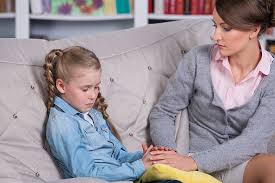
They work as part of an integrated health and well-being team within networks of schools, focusing on providing group-based and individual support, workforce capacity building and the provision of specialised services.
Our school (Tholulwazi Primary School) learner support services are embedded in area-based multi-disciplinary teams to:
- support the delivery of quality universal services for all learners, with extra effort directed to ensuring education and health and well-being services are accessible to, and inclusive of, the most vulnerable and disadvantaged.
- target the delivery of individual support services to those who require specialised expertise, assessment and intervention in order to overcome barriers to learning, develop the capability of schools to design health, learning, development and well-being strategies that focus on improving education and health and well-being outcomes.
- collaborate with multidisciplinary professional practice teams and build partnerships with community services to meet the needs of schools and students and their health, well-being and learning goals.
- respond to critical incidents involving students, staff and school communities.
Psychologists
- support schools to develop reasonable adjustments
- provide learning and teaching advice to schools
- offer support on what is needed for the Program for Students with Disabilities (PSD)
- attend critical incidents in schools where appropriate.
- support schools to develop reasonable adjustments
- offer support for principals, school staff and parents on what is needed for the Program for learners with disabilities (PSD) and how to carry out the Language and Learning Disability Support Program.
- support schools to develop reasonable adjustments
- offer support to learners, families and schools through involvement in individual, group and family work
- provide support at critical incidents in schools where appropriate.
Parent and Community involvement



Community-school relations to support learners’ learning
The partnership involve use of school and neighbourhood facilities and equipment; sharing other resources; collaborative fund raising and grant applications; volunteer assistance from parents; mentoring and training from professionals and others with special expertise; information sharing and dissemination; networking; recognition and public relations; shared responsibility for planning, implementation and evaluation of programs and services; expanding opportunities for internships, jobs, recreation and building a sense of community.
Mentorship program between community members and students.
This focuses on all students as they could benefit. On a designated day during the week, students meet with their mentors in the first 20-25 minutes after students arrive in the morning. They meet in the library to read a book or play a board game, in the gym to shoot baskets, in the school garden to water plants, or even in the hallway for a walk. We invited community leaders, business owners, grandparents, parents of teenagers, and even high school students to apply to be a mentor.
Parents volunteering.
We ask families to participate in bake sales, lemonade stands, or car washes to raise funds for school supplies. It provides an opportunity for them to spend time with us, they ask questions, and see us in our element. In additional, we invite parents to talk about their careers and skills. This will enable them to connect with their child’s classmates and to become an active participant in the classroom.
The partnership involve use of school and neighbourhood facilities and equipment; sharing other resources; collaborative fund raising and grant applications; volunteer assistance from parents; mentoring and training from professionals and others with special expertise; information sharing and dissemination; networking; recognition and public relations; shared responsibility for planning, implementation and evaluation of programs and services; expanding opportunities for internships, jobs, recreation and building a sense of community.
Mentorship program between community members and students.
This focuses on all students as they could benefit. On a designated day during the week, students meet with their mentors in the first 20-25 minutes after students arrive in the morning. They meet in the library to read a book or play a board game, in the gym to shoot baskets, in the school garden to water plants, or even in the hallway for a walk. We invited community leaders, business owners, grandparents, parents of teenagers, and even high school students to apply to be a mentor.
Parents volunteering.
We ask families to participate in bake sales, lemonade stands, or car washes to raise funds for school supplies. It provides an opportunity for them to spend time with us, they ask questions, and see us in our element. In additional, we invite parents to talk about their careers and skills. This will enable them to connect with their child’s classmates and to become an active participant in the classroom.
Exiting Learner Attributes

The Curriculum offered in the school includes subject discipline designed to give our learners a good foundation in different fields of study. Knowledge skills: focus on developing our learners thinking and communication skills. Character development: our learners will have many opportunities to develop values and skills for life. Learn through play: more engaging teaching methods, more creative learning strategies, math and science concepts through investigations and real-life activities, language skills through role play and drama. Programs for active learning to encourage learning beyond classroom. To discover new interest by learning new skills and develop their character.



